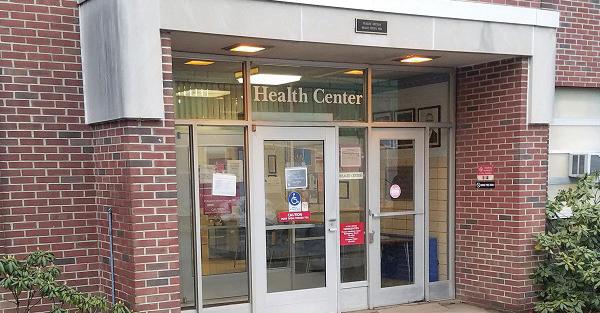
By Ryan McFadden
Staff Writer
On Sept. 19, Andrew Onimus shared the story of the life he thought of ending. Onimus told his story to a full audience at the Abeloff Performing Arts Center.
During Onimus’ senior year of college, restless nights of depression turned his days into waking nightmares.
September is suicide awareness month and Onimus’ speech was a clear window to the impact mental illness can have on college life.
“The bad thing is its invisible,” Onimus said, “you don’t know unless they tell you.”
The audience included a large amount of student athletes that were encouraged to attend the event.
The battle Onimus lived through as a student athlete pertains specifically to struggles some audience members may already have. The treatment options and help Onimus would eventually find are also viable solutions for ESU students battling mental illness.
Onimus said that for him, two minor football injuries and genetics are to blame for the insomnia, anxiety and depression that would change his life forever.
The personal struggles Onimus dealt with can be related to difficulties mentally distressed college students currently deal with.
Onimus said that even if someone isn’t a doctor they can still have a great impact on someone fighting mental illness.
He said his roommates recommended that he watch “Anchorman” to try and brighten his mood. Onimus insisted that supportive peers can help struggling students in immense ways, just by talking.
“My funk and my fall,” is how Onimus described the lowest stage of his life. Classes and lectures became harder to concentrate in and he avoided social situations he once enjoyed being a part of.
His performance on the football field also diminished along with his ability to look on the bright-side.
The darkened life Onimus found himself living was a far cry from how he felt before his senior year. During junior year, Onimus started at cornerback on his college football team and was a vocal teammate.
As junior year ended Onimus landed an internship and received a full-time job offer.
He had great family support through these stages of his life. At he beginning of senior year, Onimus described as his “1000 feet.”
He was the happiest he had ever been, starting corner back, a job lined up, everything was going his way.
“What could go wrong,” thought Onimus. When Onimus revealed the full extent of his mental illness his life got back on track.
In the emergency room on an especially trying night, Onimus opened up to a doctor about his suicidal thoughts and behaviors.
The doctor gave Onimus a diagnosis of major depressive disorder, severe anxiety and severe insomnia.
For the first time Onimus was on the road to recovery. He explained that he was put on medication and recommended to see a therapist.
Onimus accepted the fact he had depression and anxiety.
After going on three different antidepressants and to three or four different therapists, Andrew said he found the right “mix.”
The therapist Onimus finally connected with is now someone he can say, “honestly saved my life.” Onimus explained that this therapist named Austin was hard on him at first, but he needed that tough love.
At one point, Austin asked Onimus if there was ten seconds during the day when he wasn’t depressed.
Onimus’ response was honest: “Austin, literally the only thing that’s okay with me right now, that I can kinda get through is when I get my cereal bowl, I pour my Frosted Mini Wheats in that cereal bowl, and I eat my Frosted Mini Wheats, that is literally the only thing.”
Onimus explained that Austin laughed, stood up and said that when he was depressed three years ago the only thing he felt was okay in his life was eating his peanut butter toast.
In that moment, Onimus realized he could beat depression too.
Although the change wasn’t immediate, eventually Onimus made small steps and did little things which helped build back his happiness.
The connection that Onimus found with Austin is an inspiring message for college students that may feel too discouraged to see a therapist.
Onimus’ story is an encouraging display of triumph in the face of depression.
For students who are suffering from any form of mental illness, or think they may be, the Counseling and Psychological Services (CAPS) offers ESU students an opportunity to connect with a mental health professional of their own, free of charge to all enrolled students.
CAPS encourages any students who suffer from depression, anxiety, family issues, relationship problems, career decisions, academic difficulties, loneliness and problems with eating, drinking, alcohol, drugs and other issues, to visit or contact them.
The CAPS office is located on the second floor of the Flagler-Metzgar Center.
To schedule an appointment or ask questions, they can be reached at: (570)-422-3277, Monday – Friday from 8 a.m. to 4:30 p.m.
Email Ryan at:
rmcfadden5@live.esu.edu

